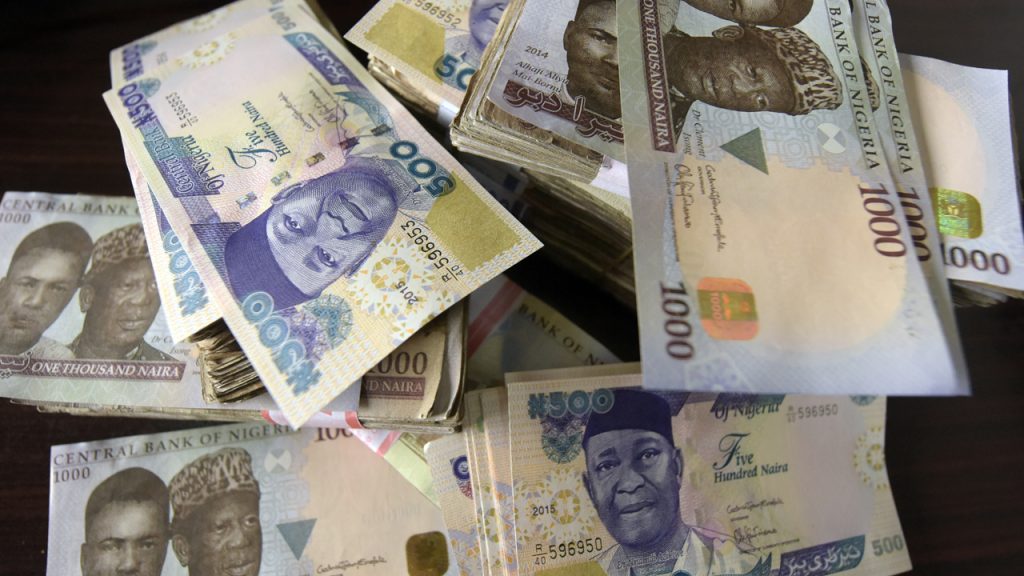Nigeria’s fiscal landscape is projected to become increasingly precarious by the end of 2025, with the nation’s total public debt anticipated to reach a staggering N160.6 trillion. This alarming figure, representing roughly 50.2% of the pre-rebased Gross Domestic Product (GDP), stems from the government’s persistent fiscal deficit and its growing dependence on borrowing to finance its expenditures. CSL Stockbrokers Limited, in its H2 2025 economic outlook, predicts that the government will likely borrow an additional N9.3 trillion or more in the latter half of the year, exacerbating the already substantial debt burden. This surge in borrowing is primarily driven by underwhelming revenue generation, both from oil and non-oil sources, coupled with delays in implementing crucial fiscal reforms.
The government’s ambitious revenue targets have been significantly undermined by a confluence of factors in the oil sector. Oil production, a cornerstone of Nigeria’s economy, has consistently fallen short of the projected 2.06 million barrels per day, averaging a substantially lower 1.67mbpd between January and May. Simultaneously, global oil prices have remained below the budgeted benchmark of $75 per barrel, further diminishing expected revenue inflows. These shortfalls have created a substantial gap in government coffers, necessitating increased borrowing to cover the deficit. Compounding the revenue challenges is the Nigerian National Petroleum Company Limited’s current practice of remitting only about half of the savings accrued from the removal of fuel subsidies to the Federation Account. This partial remittance further restricts the government’s fiscal space and intensifies the need for borrowing.
Efforts to bolster revenue through non-oil sources have also faced significant hurdles. Plans to increase the Value Added Tax (VAT) rate from 7.5% to 10% have encountered resistance from lawmakers, stalling a potentially significant revenue stream. Furthermore, the implementation of new tax legislation, initially slated to enhance revenue collection, has been postponed until 2026, further limiting the government’s ability to generate funds domestically. This combination of underperforming oil revenues and stalled tax reforms leaves the government with limited options to address its widening fiscal deficit, pushing it further towards reliance on borrowing.
The government’s increasing dependence on borrowing is evident in its recently submitted $25 billion medium-term borrowing plan. This plan encompasses various avenues for raising funds, including the potential issuance of foreign-currency-denominated local debt instruments and a likely return to the international capital market to refinance maturing Eurobonds due in November. While the recent GDP rebasing exercise might superficially improve the debt-to-GDP ratio to around 50.7% by the end of 2025, this cosmetic improvement fails to address the underlying issues of debt sustainability. Experts warn that without substantial revenue growth, the escalating debt levels pose a serious threat to the nation’s long-term fiscal health.
The current debt trajectory builds upon an already worrisome trend. Nigeria’s total public debt had already reached N149.39 trillion by March 31, 2025, a significant year-on-year increase of N27.72 trillion or 22.8% compared to the same period in 2024. This increase also reflects a quarter-on-quarter growth of N4.72 trillion or 3.3% from the debt level at the end of 2024. The continuous rise in debt is largely attributed to new borrowings by the Federal Government and the depreciation of the naira, which inflates the value of external debt denominated in foreign currencies.
The convergence of these factors paints a concerning picture of Nigeria’s fiscal future. The projected rise in public debt to N160.6 trillion by the end of 2025, coupled with persistent revenue underperformance and delayed fiscal reforms, raises serious questions about the nation’s debt sustainability. While the rebasing of the GDP might offer a temporary reprieve in terms of the debt-to-GDP ratio, analysts warn that the underlying fiscal pressures remain substantial. Without significant and sustained efforts to boost revenue generation and implement fiscal reforms, Nigeria’s reliance on borrowing could lead to a precarious fiscal position, potentially hindering long-term economic growth and stability. The need for decisive action to address these challenges is becoming increasingly urgent to avert a potential debt crisis.


